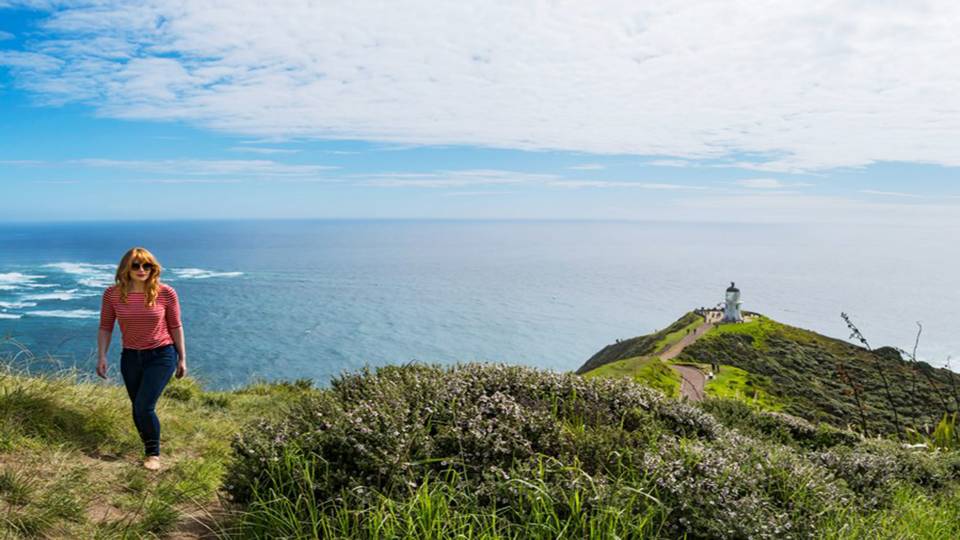Foreigners Face Ban on Buying Homes in New Zealand After Apocalypse Bolthole Fad Hikes Prices
Foreigners are to be banned from buying homes in New Zealand after a spate of millionaires seeking luxury doomsday boltholes has apparently crowded out local buyers and pushed up property prices.
Following purchases by rich expats, including tech billionaire Peter Thiel - PayPal founder and early Facebook investor - and disgraced former NBC host Matt Lauer, who lost his job after allegations of sexual misconduct - the New Zealand government is preparing to crack down on the trend.
New Zealand's allure for the mega-rich planning a safe space to ride out the apocalypse has become almost a cliche in recent years. LinkedIn co-founder Reid Hoffman told The New Yorker last year: "Saying you're buying a house in New Zealand is kind of a wink, wink, say no more."
But the country's centre-left government, led by Prime Minister Jacinda Ardern, is blaming the apocalypse preppers for a major housing crisis in the country, with rates of homelessness among the highest in the developed world.
Ms Ardern’s Labour party is adamant that a law change banning foreigners from buying most types of homes in the country - due to pass in parliament next week - will help damp down property prices, along with their plans to build 100,000 affordable housing units in a decade, resolve New Zealand’s zoning and infrastructure woes, and bolster its ailing construction industry.
The bill banning foreign buyers has been reeled in from an earlier, stricter, version, and will now allow foreigners to buy new apartments in large developments and multi-storey blocks. Existing homes remain off limits to non-residents, but people from Australia and Singapore will be exempt from the ban, due to free trade rules.
David Parker, Minister for Trade and Economic Development, who is responsible for the bill, said it wasn’t just about house prices.
“In this world of concentrating wealth, we don’t want this coterie of ultra-wealthy people overseas being able to outbid successful New Zealanders for what is our birthright, not theirs,” he said.
Some economists, along with the International Monetary Fund, question whether that is actually happening in New Zealand. Official figures released in June showed just 3.3 percent of properties that changed hands in the first three months of the year were bought by foreigners.

Bryce Dallas Howard stops to take in a view from a ridgeline near Queenstown, New Zealand.
But in central parts of Auckland, New Zealand’s largest city - which regularly features on Demographia International’s list of least affordable places to live - international buyers made up 18.7 percent of purchases. And around Queenstown, a glamorous South Island resort town, 9.7 of properties changing hands went to foreigners.
“But house prices have increased everywhere,” said Shamubeel Eaqub, a housing economist with Auckland consultancy Sense Partners.
He agreed there could be some kind of cascading effect from the new law, as removing buyers from the most lavish end of the market freed up properties further down the chain, “but it’s a question of whether you think it’s big enough to move the dial on house prices,” he said. “I struggle with it.”
Chinese residents are the most common property-buying foreigners, followed by those from Australia, Britain, and Hong Kong. But since US President Donald Trump’s election, it has increasingly been wealthy Americans buying up doomsday boltholes in New Zealand who have made international headlines.
Graham Wall, an Auckland-based real estate broker whose clients have included the Sultan of Brunei and Mr Thiel - who was controversially given citizenship after spending just 12 days in the country - said the wealthy foreigners he deals with are skittish about the new law.
"People are surprised and bemused, having been so welcome here, and they cannot understand the new hostility," he said.
Rich foreign landowners had created thousands of jobs for New Zealanders and generated billions of dollars of tourism spending, said Mr. Wall, who added that they also donated to local schools and community events.
Many of the rich-listers whose names are mentioned in such conversations own property in or near idyllic Queenstown in New Zealand’s South Island, where middle- class people struggle to afford housing.
But the town’s mayor doesn’t want foreigners locked out. Jim Boult said New Zealand’s “international reputation” was in danger if people who owned high-end properties had limits set on who they could sell them to. Mr. Boult said the competition for affordable housing in Queenstown came not from foreigners, but from wealthy New Zealanders who wanted holiday homes, and Australians - who are exempt from the law anyway.
In March, a social housing scheme planned for the area lost its European investor, Foundation Capital, which was spooked by the impending ban. The housing trust running the project has since secured a bank loan to proceed with the housing units, but a spokeswoman, Julie Scott, said the terms and conditions were “definitely not as attractive” as they were under the offshore investment model. She hoped the latest, more relaxed, version of the law might entice investors back.
A lawmaker from the centre-Right National party, Amy Adams, said she had heard of other housing projects that had fallen through because investors were wary of the new law. But the minister responsible, David Parker, rejected the suggestion that New Zealand appeared hostile to foreign investment.
"People invest a dollar based on a rate of return, not on sentiment," said Mr. Parker.
New Zealand was still a good deal, he said, touting what he called the country’s "permissive" overseas investment regime for business, and high rates of foreign direct investment.
Some submissions to a government committee considering the law earlier this year begged lawmakers to allow high net worth individuals - who they said would likely buy properties well outside what the average New Zealander could afford - to be exempt from the ban.
But Mr. Parker, the Trade Minister, said he was “offended” by the suggestion that an exception be made for the super-rich.






















